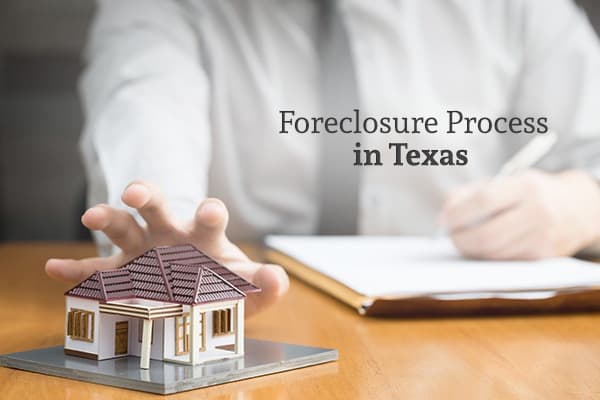
What is the Foreclosure Process in Texas?
For homeowners in Arlington and throughout Texas, few things are as stressful or confusing as facing foreclosure. The process is intimidating, fast-moving, and can feel stacked against the average family. But with the right knowledge and representation from Machi & Associates, P.C., you can navigate foreclosure, explore your legal rights, and potentially protect your most valuable asset—your home.
Understanding the Texas Foreclosure Process
Texas is known for its swift, non-judicial foreclosure process—often among the fastest in the nation. Unlike judicial foreclosure states, Texas lenders rarely need to take a homeowner to court. Instead, most residential mortgages contain a power of sale clause in the deed of trust, allowing lenders to foreclose if payments are missed.
Step 1: Missed Payments and Initial Communication
The process usually begins with missed mortgage payments. Most lenders offer a short grace period and may not report you as delinquent immediately, but after 30 days your credit can be affected, and late fees and penalties quickly add up. If you miss payments for more than 2-3 months, expect calls, letters, and notices from your lender or servicer. This early stage—before a formal notice of default—is your best window for discussing loan modifications or workout plans to avoid foreclosure.
Machi & Associates, P.C. frequently helps clients in this “pre-foreclosure” phase, negotiating directly with lenders to stop foreclosure before the process escalates.
Step 2: Loss Mitigation, Breach Letter, and 120-Day Waiting Period
By federal law, lenders cannot start formal foreclosure until at least 120 days after your first missed payment. During this Pre-Foreclosure Loss Mitigation Review Period, you may also receive a “breach letter”—an official notice warning that you are in default and foreclosure could begin unless you bring your loan current. After the breach letter, you generally have at least 20 days to pay all past-due amounts (including fees) and bring your mortgage up to date.
- Tip: Use this time to consult Texas foreclosure defense attorneys or financial counselors who may be able to help you negotiate a loan modification, forbearance, or other alternative to foreclosure.
- Beware: If you ignore these notices, the lender can move to the next phase quickly.
Step 3: Notice of Default and Right to Cure
If you are still behind after the mitigation period, Texas law requires your lender to send a certified Notice of Default and intent to accelerate (meaning the full debt becomes due). You typically have at least 20 days—sometimes longer—to “cure” the default by paying everything owed.
Step 4: Notice of Sale
If you do not cure the default, the lender must send you a Notice of Sale at least 21 days before the scheduled foreclosure auction. This notice will be:
- Sent by certified mail to the last known address
- Filed with the county clerk
- Posted at the county courthouse
Machi & Associates, P.C. strongly urges homeowners: If you receive any notice mentioning default or sale, contact our experienced Arlington foreclosure attorneys immediately. The timeline can accelerate rapidly from this point, sometimes concluding the process in less than two months.
Step 5: Foreclosure Auction
Texas foreclosure sales are held the first Tuesday of each month at the county courthouse. The property is auctioned to the highest bidder, often with the lender credit-bidding the amounts owed. The sale is public, and you may lose possession immediately. There is no right of redemption (buying back your home) after a non-judicial sale in Texas.
Why Speed Matters: How Fast Is Texas Foreclosure?
In Texas, foreclosure can move at breakneck speed:
- First missed payment to sale: As little as 60-90 days
- Shortest possible non-judicial timeline: 41 days from first notice to auction
- Typical total time, if delays or negotiations occur: Around 6 months
Judicial vs. Non-Judicial Foreclosure in Texas
While most Texas foreclosures are non-judicial (power-of-sale), some require judicial foreclosure, such as:
- Home equity loans and HELOCs
- Reverse mortgages
- Some homeowners association liens
- Tax liens or government foreclosures
Protecting Your Rights and Options with Machi & Associates, P.C.
If you’re facing foreclosure, Machi & Associates, P.C. provides the fast, personalized guidance you need to understand your options—and act before it’s too late. Our team:
- Guides you through every communication from your lender
- Fights to negotiate alternatives to foreclosure (modifications, forbearance, payment plans, voluntary short sales, or deed in lieu)
- Explains the risks and benefits of each path, including the impact on your credit and future borrowing
- Helps you pursue bankruptcy as a strategic option, if appropriate—learn more about bankruptcy for foreclosure defense in Texas
- Represents you at every stage—including potential wrongful foreclosure or lender misconduct cases
How Bankruptcy Can Help Stop Foreclosure
An Arlington bankruptcy filing—especially Chapter 13—can immediately halt foreclosure through a court-ordered temporary automatic stay. This gives you precious time to catch up on payments and reorganize your finances—potentially letting you keep your home. Machi & Associates, P.C. is a leading Texas bankruptcy and consumer protection firm and can quickly assess if bankruptcy is right for your situation.
Frequently Asked Questions About Foreclosure in Texas
How many payments can I miss before foreclosure starts?Lenders may begin foreclosure after as few as 2-3 missed payments, but this will depend on your loan and servicer policy. Communication and proactivity with your lender are crucial. Is there any government help for homeowners in foreclosure in Texas?
Programs like loan modifications, government forbearance, and certain state-mandated mediation options may exist, but are rarely automatic. Consult Machi & Associates, P.C. early for guidance on applying and negotiating. What happens if my home is sold at auction?
You lose ownership immediately. In some rare government/tax foreclosure cases, there may be a short right to redeem (buy back the home), but this does not generally apply in standard mortgage foreclosures. Can I negotiate with my lender after receiving a notice of default?
Yes—and you should! Many lenders are open to negotiation, especially if you can present a realistic proposal or work with an experienced foreclosure attorney. The earlier you act, the more options you retain. What alternatives exist besides foreclosure or bankruptcy?
Loan modification, refinancing, forbearance, repayment agreement, deed in lieu of foreclosure, or selling the property can sometimes resolve foreclosure before auction. Each option has specific pros, cons, and eligibility requirements.
Act Now—Contact Machi & Associates, P.C. Before It’s Too Late
Texas foreclosure is fast and unforgiving—but with quick action and experienced legal guidance, many families save their homes, negotiate new payment plans, or emerge with less financial damage than they ever thought possible.
Machi & Associates, P.C. offers free consultations and decades of hands-on experience defending Arlington and North Texas families in foreclosure, bankruptcy, and personal injury law. Their deep ties to the Arlington community, proven negotiation skills, and commitment to client-focused service make them the go-to law firm for Texans needing help at the most stressful moments in life.
Don’t wait until the auction date is set—contact Machi & Associates, P.C. today for fast, clear answers, and aggressive representation. Explore all your options, from foreclosure alternatives to Texas bankruptcy defense, or review their full range of Arlington personal injury legal services. Regain peace of mind, take control, and chart a new path forward—even in the face of foreclosure.






